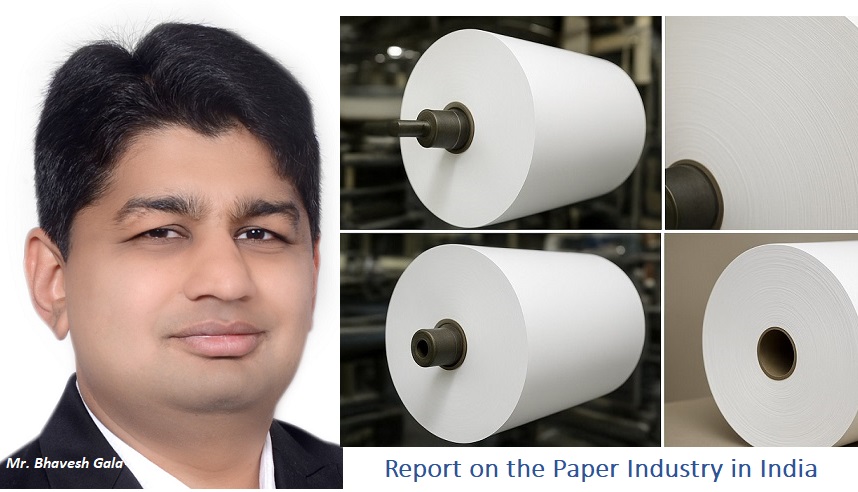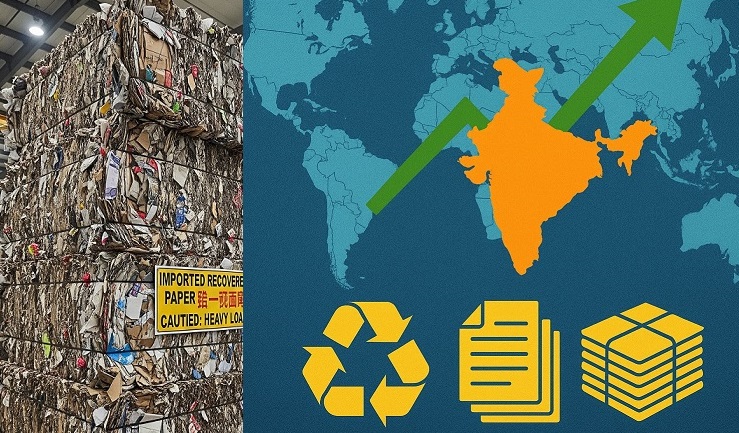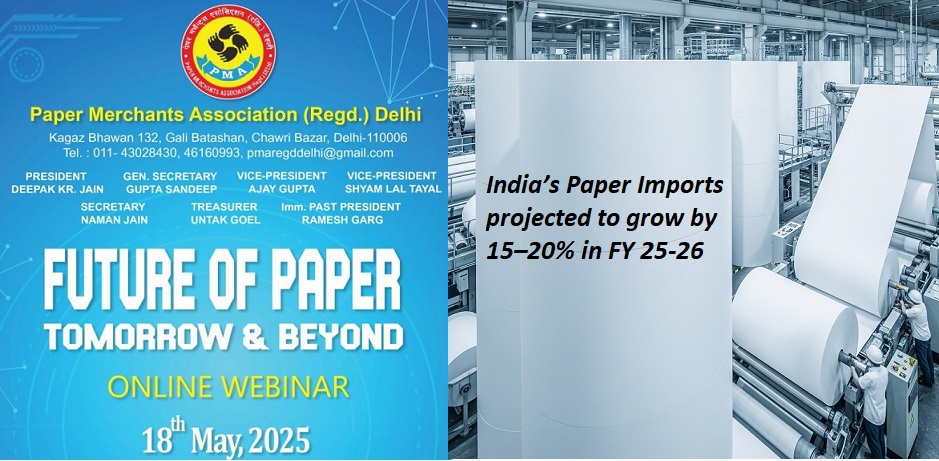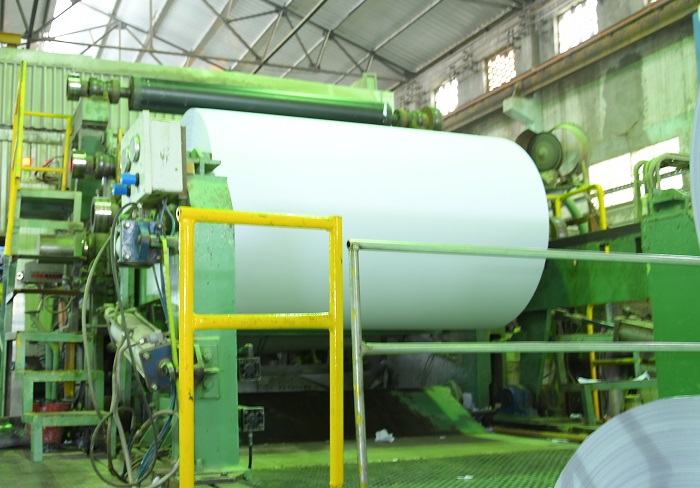Imports of paper and paperboard increased by 47% in FY 22–23, making most small and medium paper mills in India commercially unviable
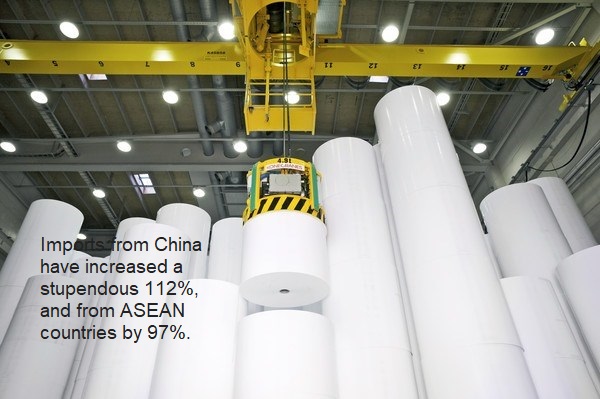
Imports of paper and paperboard increased by 47% in FY 22–23, making most small and medium paper mills in India commercially unviable
New Delhi | 16th May 2023 | The Pulp and Paper Times:
Indian imports of paper and paperboard have jumped 47%, from INR 7,839 crores in FY 2021-22 to INR 11,513 crores in FY 2022-23, according to the latest data issued by the Directorate General of Commercial Intelligence & Statistics (DGCI&S)
Imports from China have increased a stupendous 112%, and from ASEAN countries by 97%.
While the growth in imports have been across all grades of paper, the highest jump has been in the imports of uncoated writing & printing paper at 102% in 2022-23 over 2021-22, followed by coated paper and paperboard at 51%, and tissue at 41%.

The top import sources of uncoated writing & printing paper are Indonesia, Singapore and China. The top import sources of coated paper and paperboard are China, Japan and South Korea.
According to Pawan Agarwal, President, Indian Paper Manufacturers Association (IPMA), imports of paper and paperboard into India have significantly increased in the last three years, in spite of adequate domestic production capacity. While the domestic industry is grappling with the issue of producing paper and paperboard at competitive costs with rising raw material and energy costs, substantial quantities of paper and paperboard are imported into the country at significantly lower costs with nil import duty from ASEAN, South Korea and Japan under the respective free trade agreements, and preferential import duty from China under the Asia Pacific Trade Agreement (APTA). Taking advantage of the nil / low import duty rates in India, these countries find India as an attractive outlet for diverting their excess inventory.
Pawan Agarwal further stated that apart from the overall negative impact of duty-free imports on the domestic paper industry, it is making most small and medium paper mills in India commercially unviable, and also jeopardising the livelihoods of thousands of farmers engaged in agro / farm forestry and supplying wood, the primary raw material, to paper mills. This is against the spirit of “Make in India”, “Aatmanirbhar Bharat” and “Vocal for Local”.
Rohit Pandit, Secretary General, IPMA, added that in order to provide a level playing field to the domestic industry, paper and paperboard should be kept in the exclusion list, with no preferential treatment in terms of import tariff, while urgently reviewing the existing FTAs and formulating new FTAs. Further, suitable safeguard, anti-dumping and countervailing duties on imports of various grades of paper should be expeditiously imposed, once recommended by the Directorate General of Trade Remedies (DGTR).
|
India’s Imports of Paper & Paperboard (DGCI&S) |
||||||||
|
Year |
Thousand Tonnes |
INR Crores |
||||||
|
Total |
China |
ASEAN |
South Korea |
Total |
China |
ASEAN |
South Korea |
|
|
2020-21 |
1,084.7 |
145.9 |
145.2 |
63.8 |
6,140 |
1,136 |
835 |
373 |
|
2021-22 |
1,145.8 |
145.8 |
148.3 |
64.7 |
7,839 |
1,497 |
1,028 |
465 |
|
2022-23 |
1,310.1 |
312.3 |
237.6 |
75.9 |
11,513 |
3,179 |
2,030 |
728 |
|
Growth over Last Year (%) |
14.34 |
114.20 |
60.22 |
17.31 |
46.87 |
112.36 |
97.47 |
56.56 |
IPMA has also called for issue of quality control orders (QCOs) by the Government on all grades of paper and making BIS certification mandatory. Issuance of QCOs for different grades of paper will not only assure supply of quality products to the Indian consumers but also check the import of sub-standard products into the country.
Web Title: Imports of paper and paperboard increased by 47% in FY 22–23, making most small and medium paper mills in India commercially unviable




 Join WhatsApp Group
Join WhatsApp Group Join Telegram Channel
Join Telegram Channel Join YouTube Channel
Join YouTube Channel Join Job Channel (View | Submit Jobs)
Join Job Channel (View | Submit Jobs) Join Buy Sell Channel (Free to Submit)
Join Buy Sell Channel (Free to Submit) Paper News Headlines Channel (Free to read)
Paper News Headlines Channel (Free to read)

